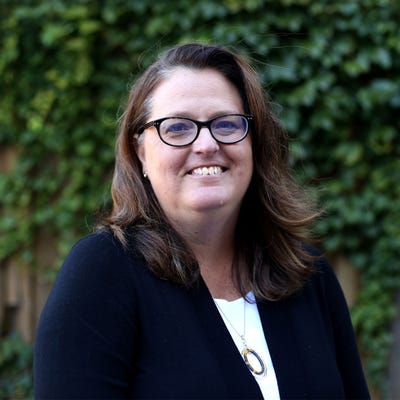Aldi to acquire Southeastern Grocers’ Winn-Dixie, Harveys supermarketsAldi to acquire Southeastern Grocers’ Winn-Dixie, Harveys supermarkets
Fresco y Más stores in Florida to be spun off to independent investment group.

Aldi U.S. plans to acquire the Winn-Dixie and Harveys Supermarkets chains from Southeastern Grocers (SEG).
Financial terms of the agreement, announced Wednesday, weren’t disclosed. Under the deal, Aldi is slated to buy approximately 400 Winn-Dixie and Harveys stores in Alabama, Florida, Georgia, Louisiana and Mississippi, the companies said. About 75% of the stores are in Florida.
Plans call for Aldi to continue to operate stores under the Winn-Dixie and Harveys banners, but the Batavia, Illinois-based discount grocer said it aims to convert selected locations to the Aldi banner.
Along with the Aldi transaction, Jacksonville, Florida-based SEG plans to spin off its 28 Fresco y Más Hispanic supermarkets in Florida to Fresco Retail Group LLC, an investment group focused on food and grocery. The new company plans for all Fresco y Más stores and pharmacies to continue operating under their current banner.

The addition of SEG's stores will make Florida Aldi's biggest state by store count, with over 500 locations. / Photo: Shutterstock
“Like Aldi, Winn-Dixie and Harveys Supermarket have long histories and many loyal customers in the Southeast, and we look forward to serving them in the years to come,” Aldi U.S. CEO Jason Hart said in a statement. “The time was right to build on our growth momentum and help residents in the Southeast save on their grocery bills. The transaction supports our long-term growth strategy across the United States, including plans to add 120 new stores nationwide this year to reach a total of more than 2,400 stores by year-end.”
For Aldi—a limited-assortment, discount grocery format—the deal with SEG will bring traditional supermarket locations into its fold.
“Aldi will operate Winn-Dixie and Harveys Supermarket stores with the same level of care and focus on quality and service, as we also evaluate which locations will convert to the Aldi format to better support the neighborhoods we’ll now have the privilege of serving," Hart commented. "For those stores we do not convert, our intention is that these continue to operate as Winn-Dixie and Harveys Supermarket stores.”
SEG, which described the transactions as “a divestiture of its businesses,” said the agreement with Aldi has been approved by holders of a majority of the company’s outstanding shares and is expected to close in the first half of 2024. The sale of the Fresco y Más banner is slated to be completed in the 2024 first quarter.
“Our successful transformational journey has created a unique opportunity with leading partners who share our vision and common commitments to creating value for their customers,” Southeastern Grocers President and CEO Anthony Hucker stated. “We believe these next steps will fuel a phenomenal experience for our customers, new opportunities for our associates and increased value for our shareholders. As the sales processes proceed, we’ll stay acutely focused upon delivering the exceptional quality, service and value that our customers and communities have come to expect from us.”
Aldi doubles down on growth in the Southeast
Aldi's deal to buy Winn-Dixie and Harveys stores from Southeastern Grocers signals that the discount grocer is doubling down on store growth in the Southeast and its U.S. brick-and-mortar footprint is about to get even bigger.
Earlier this year, Aldi—which frequently opens multiple new stores per week—revealed plans to add 120 new locations in 2023, bringing its nationwide store count to more than 2,400 by the end of the year. To date, Aldi is less than 100 stores away by reaching that goal, according to the grocer’s website. Through the transaction with SEG, Aldi will add 299 stores in Florida, 39 in Alabama, 28 in Louisiana, 25 in Georgia and six in Mississippi.

Aldi will grow its already significant presence in the Southeast even more with the acquisition of SEG's Winn-Dixie and Harveys locations. / Image courtesy of Aldi U.S.
As one of America’s fastest-growing grocers by store count—with locations in 38 states and the District of Columbia—Aldi’s long-term growth strategy in the Gulf Coast area was solidified earlier this year with the opening of its 564,000-square-foot regional headquarters and distribution center in Loxley, Alabama, which already services 100 stores.
“Our growth is led by our customers, and they continue to want more Aldi locations coast-to-coast,” Hart said in a statement regarding Aldi’s 2023 growth initiative.
The grocery landscape has seen its recent changes with supermarket chains mapping out new markets, particularly in the Southeast. Lakeland, Florida-based Publix Super Markets is readying to enter Kentucky this fall, an area with long-established market leaders Kroger and Walmart. Fast-growing Sprouts Farmers Market is also plotting growth in Florida, proving the Southeast remains a battleground in the grocery space.
Dissolution of SEG
Southeastern Grocers’ sale of its retail businesses brings to a close the company’s decline since its emergence from Chapter 11 bankruptcy protection over five years ago.
“The legacy we’ve built at Southeastern Grocers will enter a new chapter with Aldi, and we couldn’t imagine a better partner,” Hucker said in a statement.
Industry buzz recently had SEG on the selling block. In mid-November, the Wall Street Journal reported that the regional grocer was mulling a sale of the company and had entered talks with potential suitors. SEG told Winsight Grocery Business at the time that it wouldn’t comment on market speculation.
Talk of a sale came just over a year after SEG abandoned plans for an initial public offering, which marked the second time in seven years that the company had done so. The retailer said in late January 2021 that it was delaying the IPO, an announcement that came about a week after the offering’s launch. The latest effort to go public kicked off in September 2020, with the confidential filing of an S-1 draft registration with the Securities and Exchange Commission.

Southeastern Grocers' more than two dozen Fresco y Más stores, mainly in South Florida and catering to Latino shoppers, are being sold to investment group Fresco Retail Group LLC. / Photo courtesy of SEG
SEG had previously explored going public but ended up ditching its stock offering. Bi-Lo Holdings, the former parent of Winn-Dixie and Bi-Lo, filed for an IPO in September 2013 as Southeastern Grocers LLC. Then in August 2014, the company pulled the registration, which hadn’t been declared effective by the SEC.
Squeezed by a range of strong, fast-growing competitors—including supermarket operators like Publix, Ahold Delhaize USA and Kroger; discount grocer Aldi; and mass retailers Walmart, Target and Costco—SEG in recent years has worked to revamp its business and downsize and solidify its store base. That effort focused on dissolving Bi-Lo, upgrading Winn-Dixie stores (and adding some new locations) as well as growing Fresco y Más in Florida.
In September 2020, SEG made deals to sell 23 Bi-Lo and Harveys stores to grocery wholesaler and retailer Alex Lee and to independent grocer B&T Foods. The transactions advanced plans to phase out the Bi-Lo banner, which came to light in June 2020 when SEG reported the sale of 62 Bi-Lo and Harveys stores and a distribution center to Ahold Delhaize USA’s Food Lion.
The dissolution of Bi-Lo, which pulled SEG out of the Carolinas, was part of a five-year business transformation initiated with the company’s exit from Chapter 11 in May 2018. Former Schnuck Markets and Giant Food executive Anthony Hucker was tapped as president and CEO in August 2017 to lead the company’s turnaround.
This story has been updated from the original version.
About the Authors
You May Also Like







.webp?width=300&auto=webp&quality=80&disable=upscale)
